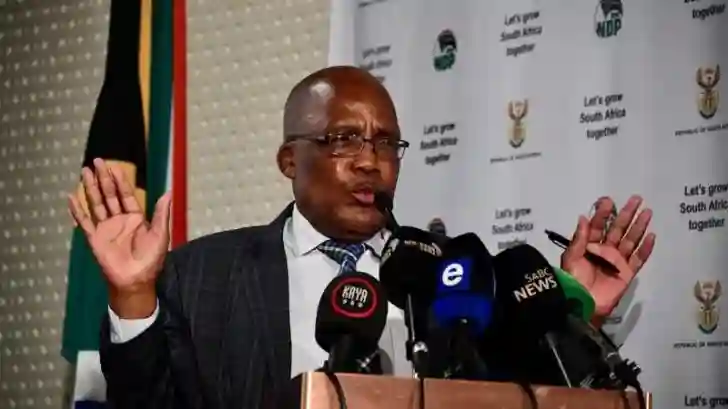South African Health Minister Aaron Motsoaledi criticised Zimbabwean and other African leaders for seeking medical treatment abroad while failing to provide adequate healthcare for their citizens at home.
In comments made to the media during the ANC NEC Lekgotla in Benoni, this week, Motsoaledi used an analogy, likening the leaders to a father who tells his children to eat next door rather than engaging the neighbour to help address the family’s challenges.
The Health Minister suggested that countries like Zimbabwe should emulate the approach taken by Eswatini, which is ruled by King Mswati III.
Eswatini has ensured that its citizens pay for medical care when seeking treatment in South Africa. He said:
Eswatini has a medical aid not like ours. Because they are a tiny country, when one of their hospitals cannot treat you, they send you to South Africa via that medical aid and the medical aid pays for you. That means the country pays.
Motsoaledi revealed that South Africa had previously advised the Eswatini government that sending patients to private hospitals in South Africa, which charge very high fees, would collapse Eswatini’s medical aid scheme.
As a result, the two countries reached an arrangement whereby Eswatini nationals covered by the medical aid scheme are instead treated at academic hospitals in South Africa, which charge lower rates than private facilities.
Motsoaledi stated that this collaborative arrangement between Eswatini and South Africa is still in place and working well for both nations.
While initially avoiding directly naming Zimbabwe, Motsoaledi went on to strongly criticize the Zimbabwean government under President Emmerson Mnangagwa and the ruling ZANU PF party.
Motsoaledi took issue with Zimbabwe sending its citizens to South Africa for free medical treatment, stating that this practice is unfair to South Africa.
Instead, the Health Minister suggested that Zimbabwe should request technical assistance from South Africa to help strengthen its healthcare system, rather than simply “throwing” its patients across the border. He said:
Other neighbours don’t do that. They just close their eyes and let people cross the border [into South Africa]… It’s unfair. And I want to say this publicly even though [it’s] sensitive.
When Phophi Ramathuba was being attacked by all and sundry, during that period when she was being attacked, she received a letter from a patient sent to South Africa by a GP in Zimbabwe. “The lady has got cancer, stage 4 already… please give that lady a pint of blood.”
In other words, one country asking another country… I will tell you why that is abhorrent to me. Blood is not manufactured.
We get it from the population. There are human beings in Zimbabwe and they have blood, lots of it, for that matter.
All they need to do if they don’t have the technology of taking that blood is to come to South Africa [and say], “Can you help us with people who are going to get people to donate blood in our country” instead of closing their eyes and throw their people over the border. It’s unfair.
Part of the reason is that Heads of State on this continent, and it is the only continent, when they are sick they go to other continents and leave their nationals alone. We have asked that that has to stop.
Ramathuba is the Premier of Limpopo Province and a former Limpopo Member of the Executive Council (MEC of Health).
She stirred controversy in August 2022 when, as MEC, she berated a Zimbabwean female patient seeking surgery at Bela-Bela, a public hospital in South Africa’s Limpopo Province.
She was filmed telling the Zimbabwean woman that foreigners were overburdening South Africa’s health sector.
The remarks attracted varying responses from people of all walks of life with fellow medical practitioners saying Ramathuba had violated the profession’s ethics.
The Zimbabwean Embassy in Pretoria expressed “shock and disbelief” over the video and conveyed its concerns through the Department of International Relations and Cooperation.
South African President, Cyril Ramaphosa said that Ramathuba could have raised the issue of immigrants using South Africa’s healthcare services “in another way”.
While answering parliamentary questions, Ramaphosa said Ramathuba had “raised an important issue” of how “service delivery is affected by migration”.
More: Pindula News

